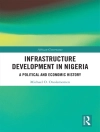Artificial Life After Frankenstein brings the insights born of Mary Shelley’s legacy to bear upon the ethics and politics of making artificial life and intelligence in the twenty-first century.
What are the obligations of humanity to the artificial creatures we make? And what are the corresponding rights of those creatures, whether they are learning machines or genetically modified organisms? In seeking ways to respond to these questions, so vital for our age of genetic engineering and artificial intelligence, we would do well to turn to the capacious mind and imaginative genius of Mary Wollstonecraft Shelley (1797-1851). Shelley’s novels Frankenstein; or, The Modern Prometheus (1818) and The Last Man (1826) precipitated a modern political strain of science fiction concerned with the ethical dilemmas that arise when we make artificial life—and make life artificial—through science, technology, and other forms of cultural change.
In Artificial Life After Frankenstein, Eileen Hunt Botting puts Shelley and several classics of modern political science fiction into dialogue with contemporary political science and philosophy, in order to challenge some of the apocalyptic fears at the fore of twenty-first-century political thought on AI and genetic engineering. Focusing on the prevailing myths that artificial forms of life will end the world, destroy nature, and extinguish love, Botting shows how Shelley modeled ways to break down and transform the meanings of apocalypse, nature, and love in the face of widespread and deep-seated fear about the power of technology and artifice to undermine the possibility of humanity, community, and life itself.
Through their explorations of these themes, Mary Shelley and authors of modern political science fiction from H. G. Wells to Nnedi Okorafor have paved the way for a techno-political philosophy of living with the artifice of humanity in all of its complexity. In Artificial Life After Frankenstein, Botting brings the insights born of Shelley’s legacy to bear upon the ethics and politics of making artificial life and intelligence in the twenty-first century.
Innehållsförteckning
Preface. Learning to Love the Bomb
Introduction. Mary Shelley and the Genesis of Political Science Fictions
Interlude. Births and Afterlives
Chapter I. Apocalyptic Fictions
Chapter II. Un/natural Fictions
Chapter III. Loveless Fictions
Coda. A Vindication of the Rights and Duties of Artificial Creatures
Acknowledgments
Postscript. ’The Journal of Sorrow’
Notes
Index
Om författaren
Eileen M. Hunt is Professor of Political Science at the University of Notre Dame. She is the author of Artificial Life After Frankenstein and Mary Shelley and the Rights of the Child: Political Philosophy in ’Frankenstein, ’ both available from the University of Pennsylvania Press.












